


Vendor Profile
SISAM Inc,
| Address | 94-2 Tanakanishihinokuchicho Kyotoshisakyoku Kyoto, JAPAN ZIP:606-8221 |
|---|---|
| Representative Name | TAIHEI MIZUNO |
| Annual Revenue | JPY 450,000,000 |
| No. of Employees | 50 |
| Web Site URL | |
| SNS |


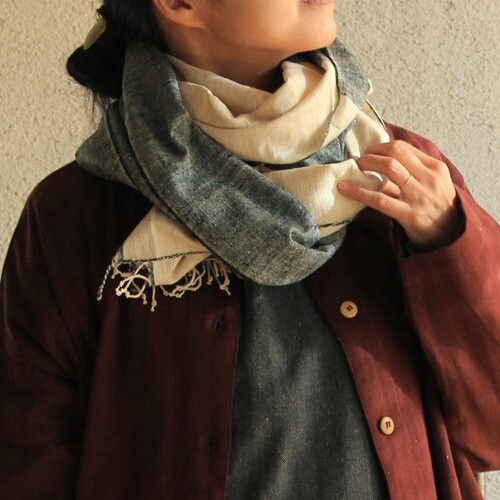
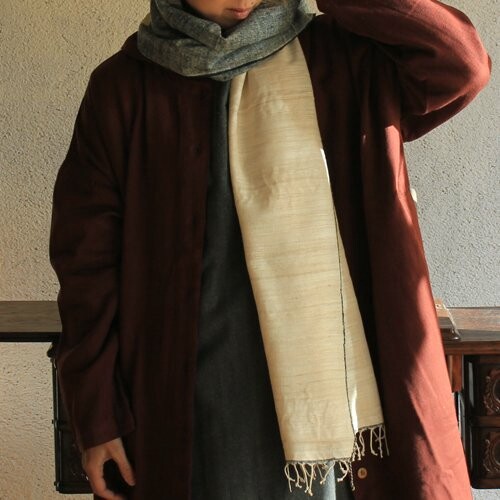


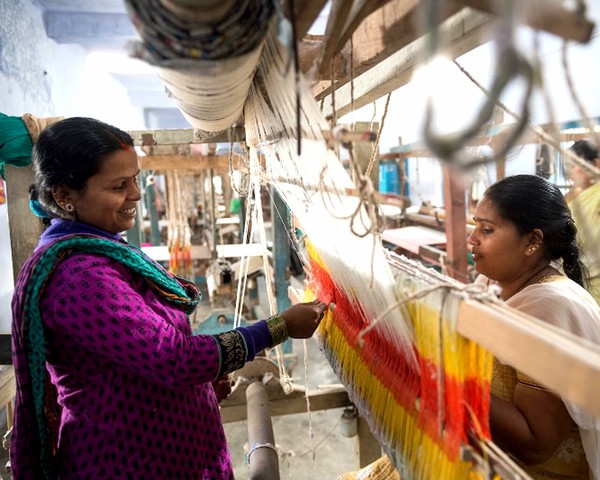




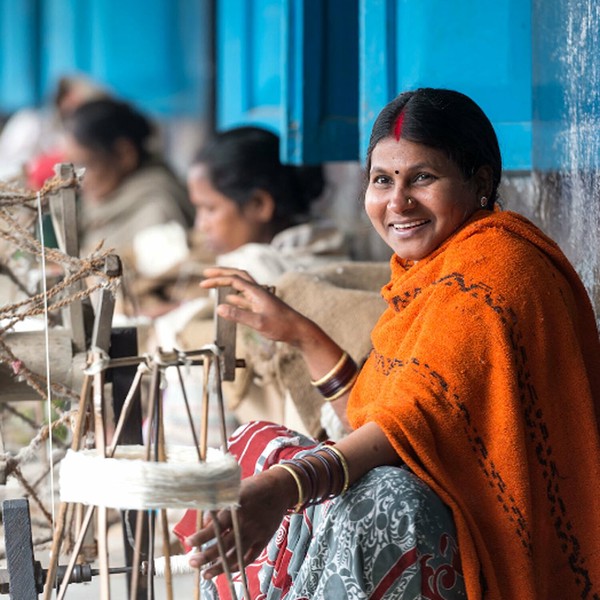
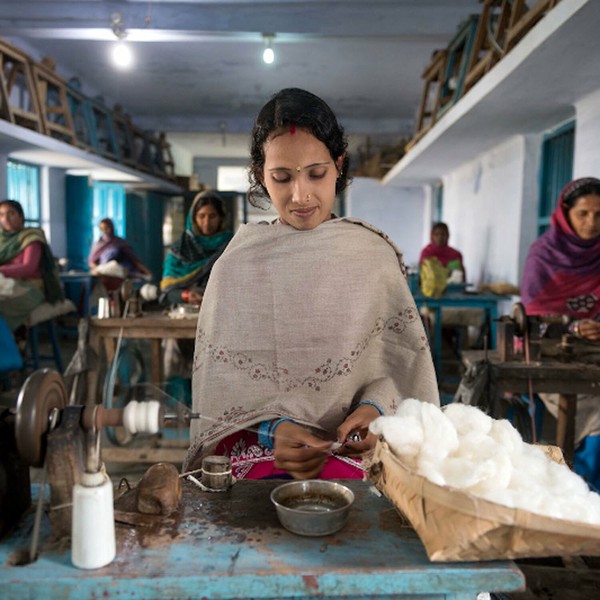
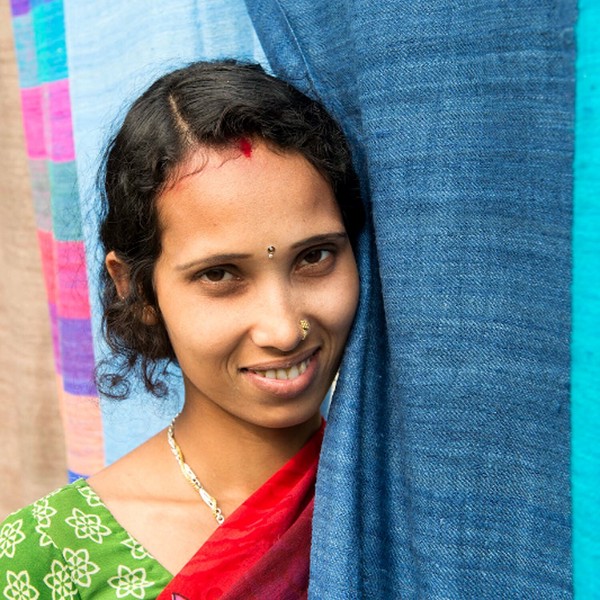
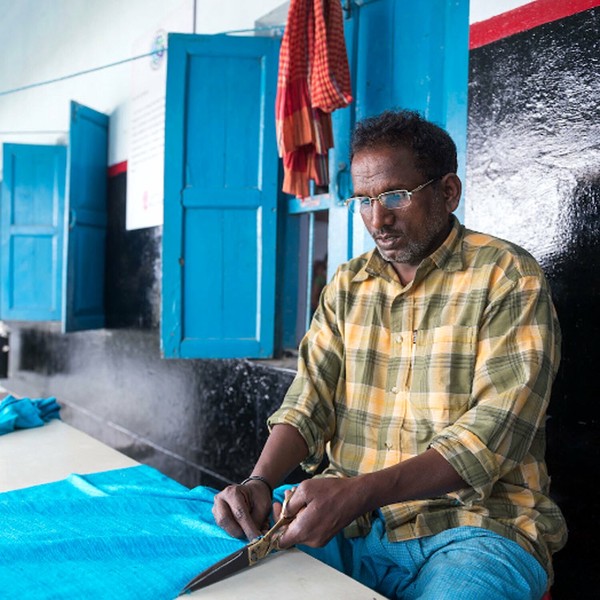
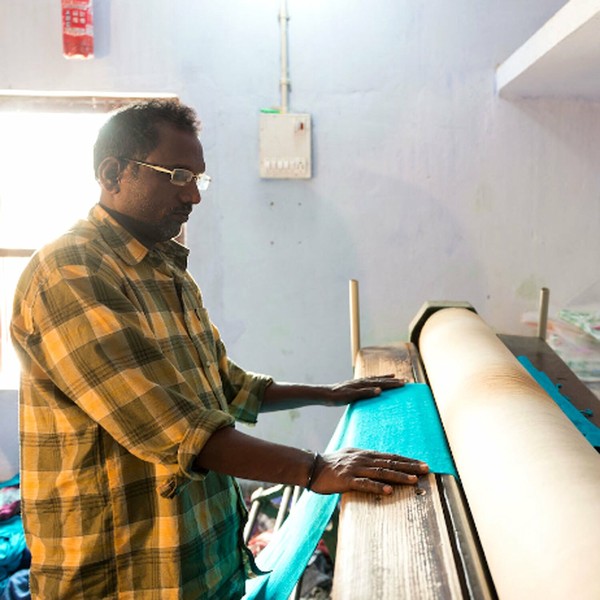
People Also Searched
Other items from this category
Shawl Fair Trade
SD item code:11863303
| Detail | Price & Quantity | ||
|---|---|---|---|
| S1 |
2-tone eli silk scarf
2トーンエリシルクストール
(17AMES2101)
|
(17AMES2101)
Wholesale Price: Members Only
1 pc /set
In Stock
|
|
| Shipping Date |
|---|
|
About 1 week
|
| Dimensions |
|---|
|
Approx. 50 cm x 180 cm (including fringe)
|
| Specifications |
|---|
|
Country of manufacture: India
Material / component: 100% silk, hand-woven
|
Description
| This two-tone scarf is made of elmsilk, which has a soft hand, a rough cotton-like feel, and excellent heat retention* and moisture absorption properties. Since it is two-tone, the colors can be changed depending on how you wrap it, giving it a variety of different looks. [The idea of ahimsa (non-life-giving) The silk used for the weft is ahimsa (non-killing) silk, based on the Gandhian philosophy. Normally, in the silk production process, silkworms are boiled alive before they leave the nest, and the cocoons are removed from the cocoons, so the silkworms inside die. In contrast, ahimsa silk is made without taking away the lives of the silkworms, as the cocoons are carefully unraveled after they leave the nest and the threads are spun. *The warp yarn is not Ahinsa silk in order to maintain the strength of the product. [Making stoles that create a path to tomorrow] These scarves are made by a group called Little Flower, a member of the fair trade NGO MESH. Located in Bihar, one of the poorest states in India, the community was originally formed by leprosy patients who were forced to leave their villages and drifted into the country. In India, where prejudice against people affected by leprosy and other disabilities remains strong, and many are unable to find work, the group makes stalls to help the makers and their families lead self-reliant lives. Spinning, dyeing, winding, hand weaving... The makers create each silk stole by their own bodies and the power of nature, without relying on electricity. Please come and experience the beautiful world of handcraft. [Fair Trade] |
More
| Shipping Method | Estimated Arrival |
|---|---|
| Sea Mail | From Mar.11th 2026 to May.13th 2026 |
| Air Mail | From Feb.23rd 2026 to Feb.25th 2026 |
| EMS | From Feb.20th 2026 to Feb.25th 2026 |
| Pantos Express | From Feb.24th 2026 to Feb.27th 2026 |
| DHL | From Feb.20th 2026 to Feb.24th 2026 |
| UPS | From Feb.20th 2026 to Feb.24th 2026 |
| FedEx | From Feb.20th 2026 to Feb.24th 2026 |
|
Some trading conditions may be applicable only in Japan.
*Because it is hand-woven, the width of the product may not be the same depending on how the threads are cast.
*When washing, please hang dry in shade to prevent sunburn. *When washing or cleaning, dark colors may fade, so please wash separately from other items. *Please be careful not to transfer colors to light-colored clothes, bags, etc. even when dry. Prices have been revised effective November 10, 2023. |
Other items from this category:
Since it is two-tone, the colors can be changed depending on how you wrap it, giving it a variety of different looks.
[The idea of ahimsa (non-life-giving)
The silk used for the weft is ahimsa (non-killing) silk, based on the Gandhian philosophy.
Normally, in the silk production process, silkworms are boiled alive before they leave the nest, and the cocoons are removed from the cocoons, so the silkworms inside die.
In contrast, ahimsa silk is made without taking away the lives of the silkworms, as the cocoons are carefully unraveled after they leave the nest and the threads are spun.
*The warp yarn is not Ahinsa silk in order to maintain the strength of the product.
[Making stoles that create a path to tomorrow]
These scarves are made by a group called Little Flower, a member of the fair trade NGO MESH.
Located in Bihar, one of the poorest states in India, the community was originally formed by leprosy patients who were forced to leave their villages and drifted into the country.
In India, where prejudice against people affected by leprosy and other disabilities remains strong, and many are unable to find work, the group makes stalls to help the makers and their families lead self-reliant lives.
Spinning, dyeing, winding, hand weaving...
The makers create each silk stole by their own bodies and the power of nature, without relying on electricity.
Please come and experience the beautiful world of handcraft.
[Fair Trade]
【フェアトレード】